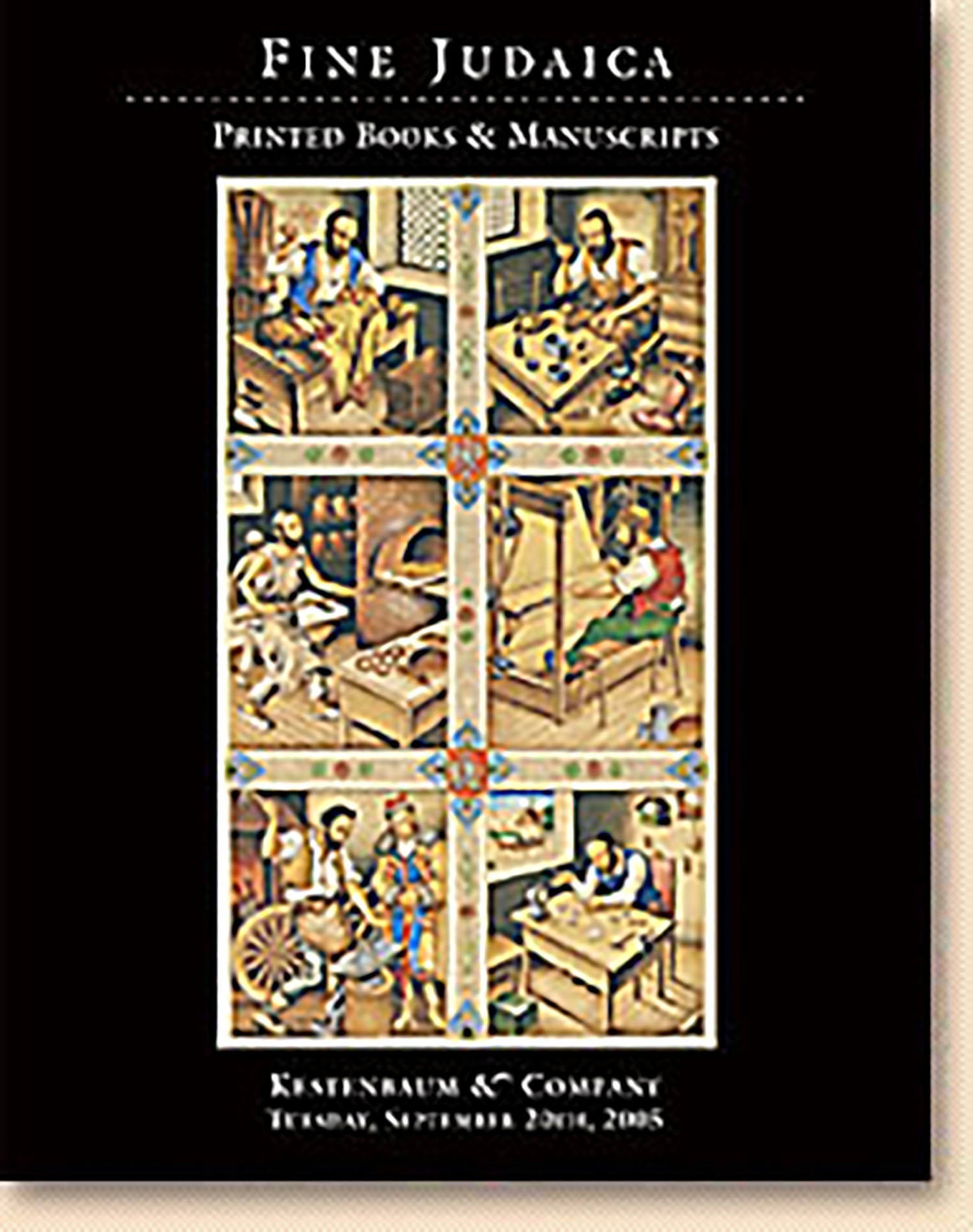(Silva, Antonio da “O Judeu”). Telemaco en la Isla de Calipso [Telemachus on the Isle of Calypso]

AUCTION 30 |
Tuesday, September 20th,
2005 at 1:00
Fine Judaica: Books and Manuscripts
Lot 18
(AMERICAN JUDAICA)
(Silva, Antonio da “O Judeu”). Telemaco en la Isla de Calipso [Telemachus on the Isle of Calypso]
Barcelona: Juan Francisco Piferrer, circa 1798
Est: $3,000 - $4,000
PRICE REALIZED $3,250
RARE 18th CENTURY PLAY BY THE MARTYRED BRAZILIAN-JEWISH PLAYWRIGHT, ANTONIO DA SILVA. Editions of separate plays of a popular nature such as the present one are extremely rare, as they were intensively read and used.
A Spanish translation of a pseudonymous theatrical piece by Antonio José da Silva (popularly known as O Judeu, "The Jew"). Telemaco en la Isla de Calipso is a work which, under its mythological disguise, was in fact an epic full of political and moral lessons. It has been interpreted as containing hidden meaning, its issues of loyalty and virtue are seen to be relevant to the playwright's loyalty and heroic adherence to his ancestral, Jewish faith.
Of Converso origin, António José da Silva (1705-39), was born in Rio de Janeiro, Brazil, where he and his family remained secretly loyal to Judaism, a consequence of which, in 1713, the family were deported to Portugal on Judaizing charges. Eventually penanced and released, da Siva remained in Portugal and turned increasingly to writing; swiftly building a reputation for possessing a prolific and versatile style and eventually he became known as the outstanding Portuguese dramatist of the era. Within a large oeuvre, da Silva wrote a series of stage satires criticizing the evils of contemporary society, which were popularly known as the "Works of The Jew," they were frequently performed during and after the 1730s.
In 1737 da Silva, was arrested by the Inquisition, and once again, Judaizing charges were pressed against him. Evidence of Sabbath observance and unorthodox fasting was provided by a family-servant. Prolonged torture failed to break his will and he was finally condemned. Repeated efforts were made to intercede for him by distinguished statesmen and poets - even King John V - but all proved fruitless, and, on October 19th, 1739, da Silva was publicly burned, his family compelled to attend the Auto. The same evening one of his popular operettas was performed at the Lisbon Theater
